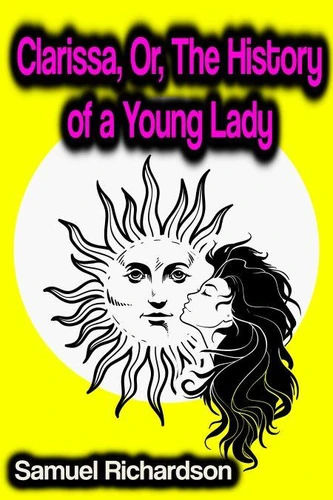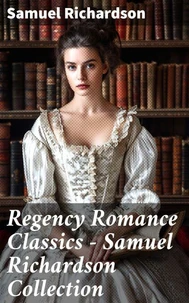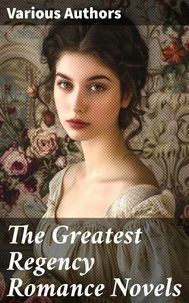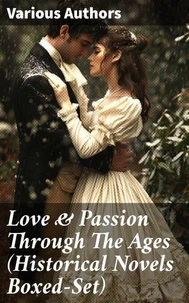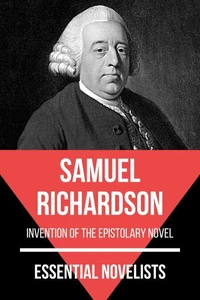Clarissa, Or, The History of a Young Lady
Par :Formats :
Disponible dans votre compte client Decitre ou Furet du Nord dès validation de votre commande. Le format ePub est :
- Compatible avec une lecture sur My Vivlio (smartphone, tablette, ordinateur)
- Compatible avec une lecture sur liseuses Vivlio
- Pour les liseuses autres que Vivlio, vous devez utiliser le logiciel Adobe Digital Edition. Non compatible avec la lecture sur les liseuses Kindle, Remarkable et Sony
 , qui est-ce ?
, qui est-ce ?Notre partenaire de plateforme de lecture numérique où vous retrouverez l'ensemble de vos ebooks gratuitement
Pour en savoir plus sur nos ebooks, consultez notre aide en ligne ici
- Nombre de pages888
- FormatePub
- ISBN978-3-98677-675-6
- EAN9783986776756
- Date de parution08/11/2021
- Protection num.Digital Watermarking
- Taille3 Mo
- Infos supplémentairesepub
- Éditeurcoolaij
Résumé
Clarissa, Or, The History of a Young Lady Samuel Richardson - Pressured by her unscrupulous family to marry a wealthy man she detests, the young Clarissa Harlowe is tricked into fleeing with the witty and debonair Robert Lovelace and places herself under his protection. Lovelace, however, proves himself to be an untrustworthy rake whose vague promises of marriage are accompanied by unwelcome and increasingly brutal sexual advances.
And yet, Clarissa finds his charm alluring, her scrupulous sense of virtue tinged with unconfessed desire. Told through a complex series of interweaving letters, "Clarissa" is a richly ambiguous study of a fatally attracted couple and a work of astonishing power and immediacy. A huge success when it first appeared in 1747, and translated into French and German, it remains one of the greatest of all European novels.
Its rich ambiguities - our sense of Clarissa's scrupulous virtue tinged with intimations of her capacity for self-deception in matters of sex; the wicked and amusing faces of Lovelace, who must be easily the most charming villain in English literature - give the story extraordinary psychological momentum. .
And yet, Clarissa finds his charm alluring, her scrupulous sense of virtue tinged with unconfessed desire. Told through a complex series of interweaving letters, "Clarissa" is a richly ambiguous study of a fatally attracted couple and a work of astonishing power and immediacy. A huge success when it first appeared in 1747, and translated into French and German, it remains one of the greatest of all European novels.
Its rich ambiguities - our sense of Clarissa's scrupulous virtue tinged with intimations of her capacity for self-deception in matters of sex; the wicked and amusing faces of Lovelace, who must be easily the most charming villain in English literature - give the story extraordinary psychological momentum. .
Clarissa, Or, The History of a Young Lady Samuel Richardson - Pressured by her unscrupulous family to marry a wealthy man she detests, the young Clarissa Harlowe is tricked into fleeing with the witty and debonair Robert Lovelace and places herself under his protection. Lovelace, however, proves himself to be an untrustworthy rake whose vague promises of marriage are accompanied by unwelcome and increasingly brutal sexual advances.
And yet, Clarissa finds his charm alluring, her scrupulous sense of virtue tinged with unconfessed desire. Told through a complex series of interweaving letters, "Clarissa" is a richly ambiguous study of a fatally attracted couple and a work of astonishing power and immediacy. A huge success when it first appeared in 1747, and translated into French and German, it remains one of the greatest of all European novels.
Its rich ambiguities - our sense of Clarissa's scrupulous virtue tinged with intimations of her capacity for self-deception in matters of sex; the wicked and amusing faces of Lovelace, who must be easily the most charming villain in English literature - give the story extraordinary psychological momentum. .
And yet, Clarissa finds his charm alluring, her scrupulous sense of virtue tinged with unconfessed desire. Told through a complex series of interweaving letters, "Clarissa" is a richly ambiguous study of a fatally attracted couple and a work of astonishing power and immediacy. A huge success when it first appeared in 1747, and translated into French and German, it remains one of the greatest of all European novels.
Its rich ambiguities - our sense of Clarissa's scrupulous virtue tinged with intimations of her capacity for self-deception in matters of sex; the wicked and amusing faces of Lovelace, who must be easily the most charming villain in English literature - give the story extraordinary psychological momentum. .

